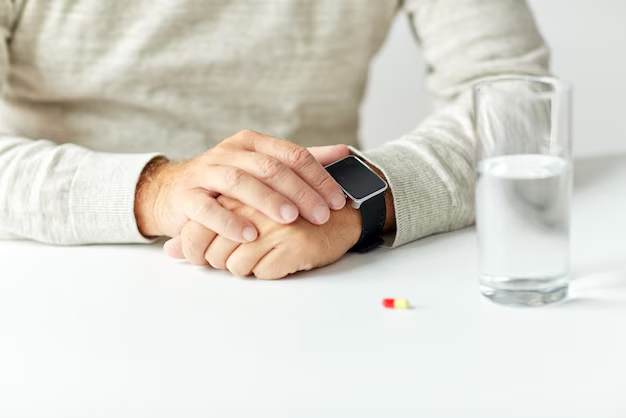Your Guide to Does Hypertension Make You Tired
What You Get:
Free Guide
Free, helpful information about HyperTension FAQ and related Does Hypertension Make You Tired topics.
Helpful Information
Get clear and easy-to-understand details about Does Hypertension Make You Tired topics and resources.
Personalized Offers
Answer a few optional questions to receive offers or information related to HyperTension FAQ. The survey is optional and not required to access your free guide.
Feeling Fatigued? Could Hypertension Be the Cause?
Do you often feel fatigued, even after a good night's sleep? If you have hypertension, or high blood pressure, this might not just be a coincidence. Hypertension is known as a "silent killer," not only because it stealthily damages your cardiovascular system but also due to the subtler ways it can affect daily life, such as causing fatigue. While this might seem like a mere inconvenience, understanding the link between hypertension and tiredness can lead you to take steps that significantly improve your quality of life.
Why Hypertension Can Make You Tired
1. Oxygen and Blood Flow:
High blood pressure can compromise the efficient flow of blood, the primary transporter of oxygen and nutrients in your body. When your organs, including the brain, don't receive adequate oxygen, this can lead to fatigue.
2. Heart Strain:
Your heart is the engine that keeps your body moving, and hypertension makes it work harder than usual. This increased workload can lead to heart muscle fatigue, manifesting as general body tiredness.
3. Medication Side Effects:
Many individuals with hypertension take medications such as beta-blockers to manage their condition. While effective in controlling blood pressure, these medications can also lead to feelings of tiredness as a side effect.
Addressing Hypertension-Related Fatigue
If you're experiencing fatigue related to hypertension, there are practical steps you can take:
Consult with a Healthcare Provider: Regular check-ups can help monitor your condition and adjust medication if necessary. Discuss any side effects like fatigue to explore alternative treatments.
Improve Lifestyle Habits: Balanced diets and regular physical activity can enhance cardiovascular health, potentially reducing fatigue. Exercises such as walking, swimming, and yoga can be beneficial.
Stress Management: Chronic stress contributes to hypertension. Techniques such as mindfulness, deep-breathing exercises, and adequate rest can mitigate stress and reduce tiredness.
Exploring Financial and Educational Resources
For those struggling with hypertension, the journey to wellness doesn't stop with medical treatment. Navigating healthcare costs, medication expenses, and the lifestyle changes required often come with a financial burden. Here are ways you can seek assistance:
Financial Assistance Programs:
Medicaid: Offers medical coverage and prescription assistance for those with qualifying low-income levels.
Medicare Part D: Helps cover prescription medications, making it more affordable for seniors and adults with disabilities.
Debt Relief and Credit Solutions:
Debt Management Plans: Work with credit counselors to reduce debt from medical bills, thus relieving some financial stress.
Low-interest Loans: Some credit unions and banks offer low-interest loans specifically for medical expenses.
Educational Grants and Programs:
Scholarships for Health Studies: If you're passionate about understanding more about conditions like hypertension and contributing to the field, numerous grants and scholarships are available for further education.
Workshops and Seminars: Local health departments and non-profit organizations often provide free workshops on management and prevention of hypertension.
Taking control of your financial well-being can be as crucial as managing your health. Whether it's exploring governmental aid, optimizing your income through scholarships, or easing medical debt, these resources can offer relief and allow you to focus on recovery and vitality.
Helpful Resources at a Glance:
- 🏥 Medicaid & Medicare: Comprehensive coverage plans for healthcare needs.
- 💳 Debt Relief Programs: Options to consolidate and manage debt effectively.
- 🎓 Scholarships & Grants: Opportunities to fund your education in health sciences.
- 💡 Credit Counseling: Financial advice to manage and reduce medical debt.
Living with hypertension doesn't have to mean enduring fatigue without answers. By understanding the condition and taking advantage of available resources, you can improve not only your health but also your financial stability and overall life satisfaction.
What You Get:
Free HyperTension FAQ Guide
Free, helpful information about Does Hypertension Make You Tired and related resources.

Helpful Information
Get clear, easy-to-understand details about Does Hypertension Make You Tired topics.

Optional Personalized Offers
Answer a few optional questions to see offers or information related to HyperTension FAQ. Participation is not required to get your free guide.


Discover More
- a 66 Year Old Female With a History Of Hypertension
- Are Eggs Bad For Hypertension
- Are Eggs Good For Hypertension
- Are Endocrine Disorders Causing Hypertension Rare
- Can Adderall Cause Hypertension
- Can Alcohol Cause Hypertension
- Can Allergies Cause Hypertension
- Can Anemci People Get Hypertension
- Can Anemia Cause Hypertension
- Can Antibiotics Cause Hypertension
